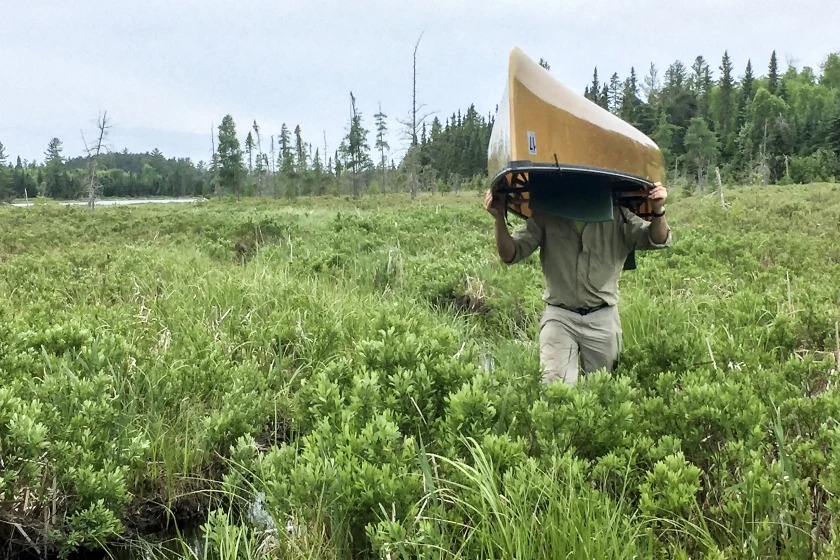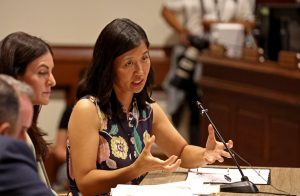
Minnesota announces plans to sell 80,000 acres in Boundary Waters to feds
Minnesota officials have proposed selling approximately 80,000 acres of school trust land scattered throughout the Boundary Waters Canoe Area Wilderness to the federal government, which already controls the area.
The Minnesota Department of Natural Resources and Office of School Trust Lands said last week that the plan includes the state removing the land’s school trust designation and then the federal government buying the land with Land and Water Conservation Funds.
The plan to sell the land replaces a plan introduced in 2012 that would have seen the state give the land to the federal government in exchange for federal land outside the BWCA that the state would then use as school trust land.
Since that exchange is canceled, the U.S. Forest Service looks to buy 15,000 acres of land in the Superior National Forest, but outside the 1.1-million acre BWCA, from the Conservation Fund, an environmental nonprofit.
School trust lands are intended to support Minnesota school districts by generating revenue from mining and timber harvesting on the land. However, those activities were banned within the BWCA by the 1978 Boundary Waters Canoe Area Wilderness Act, leaving the state unable to use the land locked in the wilderness for its designated purpose.
The DNR noted it was consulting with the Forest Service, tribes and counties for the possible purchase of other school trust lands outside the BWCA from the Conservation Fund.
“This important land transaction ensures that the DNR can fulfill its fiduciary responsibility to the school trust,” DNR Commissioner Sarah Strommen said in a news release. “We are pleased to work with the U.S. Forest Service and The Conservation Fund to remove school trust lands from within the BWCAW and acquire forest lands outside the wilderness for the public.”
Tom Hall, forest supervisor of the Superior National Forest, said in the release that the sale would end long-running “administrative issues” experienced by the state and Forest Service.
In a July 11 letter, Hall wrote that the state picked a sale over the land exchange after public comments and tribal consultation revealed “several issues” with the planned exchange.
“Land exchanges require two willing parties. Because the state of Minnesota has withdrawn its request for exchange, this is no longer the case,” Hall wrote.
Some mining and logging interests wanted to see a total land exchange to transfer more federal land into state control, potentially easing access for mining and logging companies, while environmental and wilderness groups backed a sale.
Friends of the Boundary Waters Wilderness and Save the Boundary Waters each issued statements Friday hailing the decision to sell rather than exchange the land.
“We are extremely pleased about this announcement,” said Pete Marshall, communications director with Friends of the Boundary Waters Wilderness. “This is a solution that protects the wilderness, maintains public access, and resolves a long-standing issue without compromising the Superior National Forest. It’s a win for conservation, for people, and the integrity of our public lands.”
The Boundary Waters wilderness is located in the far northeast corner of Minnesota, just a few miles from the U.S.-Canada border.

